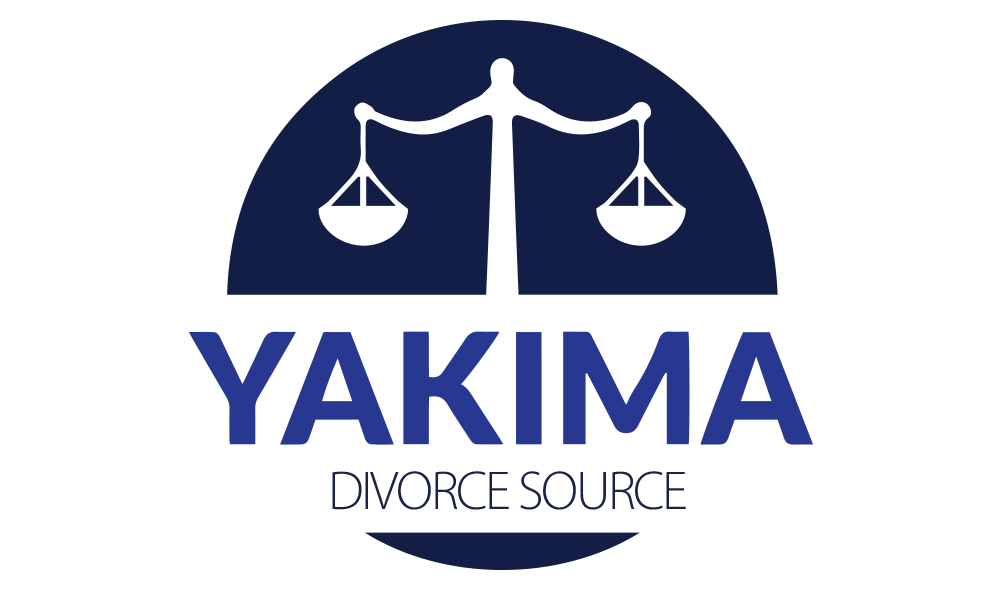How to Protect Your 401k in a Divorce
If you are going through a divorce, it is only natural to have concerns about how your marital property will be divided between you. While this is a complicated matter regardless of what the asset is, the issue of your 401k can be more so. One of the most important first steps you can take to help protect your 401k in divorce is working closely with an experienced Yakima divorce attorney throughout the legal process.
The Equitable Division of Your Marital Property
The assets that you acquire over the course of your marriage are considered community property (or marital property) in the State of Washington. In a Washington divorce, these assets are divided equitably, which can mean equally but may not. Ultimately, the court divides marital property fairly in relation to the circumstances involved. Those assets that either of you owned separately when you married – and that you kept separate throughout your marriage – will remain your own, but the distance between separate property and community property can be razor-thin. A note that should be made here about your 401k is that, even if it came into your marriage with you and is your separate property to that point, any increase in its value over the years will be considered a marital asset.
Knowing Your 401k’s Worth
Before the court determines how your 401k will be divided between you and your ex, it will need to know more about it, including its current value. This means that you will need to obtain a summary plan description (SDP) of your 401k and will need to know the rules as they relate to dividing the assets in your 401k. Your Yakima divorce attorney will need this information in order to draft an agreement that is acceptable to the plan administrator. If your divorcing spouse has a 401k – or another retirement account – that is similar in value to your own, you may reach an agreement that essentially says they cancel one another out. If your own 401k, however, is worth substantially more, the matter is more challenging.
The Tax Implications
It is not simply a matter of dividing the current value of your 401k – or the portion of it that is marital property – in half and being done with it. There are important tax implications to take into consideration. Consider the following distinctions:
- If you have a traditional 401k, the amount in it is tax-deferred, which means that you will owe taxes on any distributions you take, including divorce-generated distributions.
- If you have a Roth 401k, on the other hand, the amount therein represents after-tax dollars, so you won’t owe any taxes on withdrawals.
Taxes are complicated in the best of times, and when divorce is involved, they tend to become that much more so. If you have a 401k to consider, moving forward with an eye toward the tax implications is critical.
Protecting the Value of Your 401k
It is very likely that your 401k will be more valuable to you overall if you can buy out your ex’s ownership in it. Generally, this means allowing him or her to take a more considerable cut of other marital assets – if that is an option. Additionally, there is a penalty for dipping into your traditional 401k prior to you turning 59 and a half.
If you are dividing your 401k upon divorce, you will likely do so with a qualified domestic relations order (QDRO), which is a court order that grants your divorcing spouse a specific portion of your 401k. Often, the 401k can be split, and while you can continue to contribute to and manage your own portion, your spouse won’t have the option of adding directly to his or her portion – although he or she can manage the investment options and the funds therein. If there are increased tax implications, including penalties, you may be able to stipulate that your ex is responsible for handling them or that they are divided between you (instead of you shouldering the financial burden alone).
Rolling Your 40lk Over
There is also the possibility of rolling your 401k over into an individual retirement plan – if your plan allows it or if you’ve left your employer). This strategy allows you to move your portion of your 401k into an IRA in your name alone while providing your spouse with their portion in their own IRA. While there may be a relatively low one-time rollover expense involved, you won’t have to consider the tax implications until you withdraw funds from the IRA in retirement.
Liquidation
While you may be able to liquidate your 401k if you experience a cash emergency as your divorce proceeds, this is an expensive option that comes with considerable tax implications and penalties. In other words, liquidation should only be considered when it is your best option, given your difficult situation.
Factors that Affect the Division of Your Marital Property
In order to have a better feel for how your marital assets will be divided between you, including your 401k, it’s important to know the factors that the court takes into consideration, including:
- The length of your marriage
- The overall size and value of your marital estate
- Your separate assets as compared to your divorcing spouse’s
- Your contributions to one another’s careers and earning power (such as if one of you worked to put the other through college)
- How your family home factors into the division of your marital assets (will one of you be staying in the home with your children, for example)
While wrongdoing will not play a role in this division (Washington is a no-fault divorce state), any spending down of assets, wasting of assets, or otherwise artificially diminishing your overall marital assets – on the part of either spouse – can affect how the court decides to divide marital property.
Prenuptial and Postnuptial Agreements
The only way to fully protect your 401k in a divorce is to have a legally binding prenuptial agreement or postnuptial agreement in place. A prenuptial agreement is a legal contract that is entered into prior to marriage, and that goes into effect upon marriage, and a postnuptial agreement is a legal contract that is executed during marriage. These legal agreements are the surest way to address how your assets will be divided between you in the event of divorce. If you have neither, however, you’ll need to formulate a plan for protecting your 401k outside of these contractual protections.
FAQ
If you are concerned about protecting your 401k in divorce, you no doubt have questions, and the answers to some of those that are asked most frequently may help you make the right choices for you moving forward.
Am I required to share my 401k?
If you acquired your 401k while you were married – or your 401k grew in value while you were married – you will be required to split the value equitably (or fairly) with your divorcing spouse. You may be able to offset the value with other assets or find another equitable solution, but your 401k is included in your marital assets.
What’s the best way to protect my financial rights in the process?
Some of the most effective ways to protect your financial rights as they relate to your 401k include the following:
- Have an experienced divorce attorney in your corner.
- Have a strong working knowledge regarding the value of your 401k and the rules that affect dividing it (your plan has its own provisions and rules and will generally direct what you can and can’t do).
- Explore your best options, factor in all tax implications and penalties, and consider possible alternatives.
- Remember that keeping your 401k and allowing your divorcing spouse to take his or her share in other assets is often the most straightforward and least costly way to address the matter (whenever possible).
Can’t I just divide the 401k on my own?
The fact is that you need a court order to divide your 401k, which means that you can’t simply take care of the matter on your own. The judge in your divorce case will need to sign off on your QDRO, which will define you and your spouse’s separate ownership. This QDRO can also help to ensure that you avoid tax penalties for early withdrawals or distributions to the degree possible.
Can my divorcing spouse and I determine the division of our marital property on our own?
If you are seeking a divorce, you and your spouse can determine all the terms of your divorce between yourselves, and the court is very likely to sign off on them (as long as they are in the best interests of your children and do not disadvantage one spouse unfairly). In the end, working closely with your respective divorce attorneys and concentrating on negotiating with your soon-to-be ex is the surest path toward expediting the divorce process and keeping your divorce costs down. If you do divide your 401k in your divorce, your skilled divorce attorney will help to ensure that you have addressed all the administrative details and that your QDRO supports your financial rights and best interests.
How will debt affect the division of our marital property?
Generally, your marital property will be offset by your debt prior to being divided. Those debts that came into your marriage with either of you – such as student loans – are likely to be considered separate property, while the debt you acquire during your marriage is likely to be considered marital. It’s important to understand, however, that the judge in your case may determine that a debt acquired during your marriage is separate. Common examples include gambling debt and funds used to finance extramarital affairs. The debt attached to an asset that either spouse acquires during the divorce is usually allotted to that spouse. For example, if one of you keeps your marital home, he or she will likely also take on the mortgage.
What are my basic options when it comes to my 401k and divorce?
While your situation will be unique to you, the basic options when it comes to divorce and your 401k include:
- You keep your 401k and provide your divorcing spouse with other assets that balance out his or her share of ownership. This requires a thorough understanding of your 401k, involved tax calculations, and growth potential to assure a fair division of assets.
- You divide your 401k with your spouse directly, which is an even more labor-intensive approach and requires a keen working knowledge of your retirement account and the applicable rules and regulations.
- You roll your 401k over into an IRA, which allows you to avoid considerable penalties and tax liabilities and allows your ex considerable independence related to managing his or her portion of the account. This is only an option, however, if you are at least 59 and a half or are no longer working for the employer from whom your 401k originated.
- You liquidate your 401k, which is usually reserved for those situations in which there is no better option.
Seek the Guidance of an Experienced Yakima Divorce Lawyer Today
The formidable divorce attorneys at Dobbs & Young in Yakima, Washington, have an exemplary track record of helping clients like you successfully protect their 401ks in divorce, and we’re also here for you. To learn more, please don’t wait to contact or call us at 509-577-9177 today.

